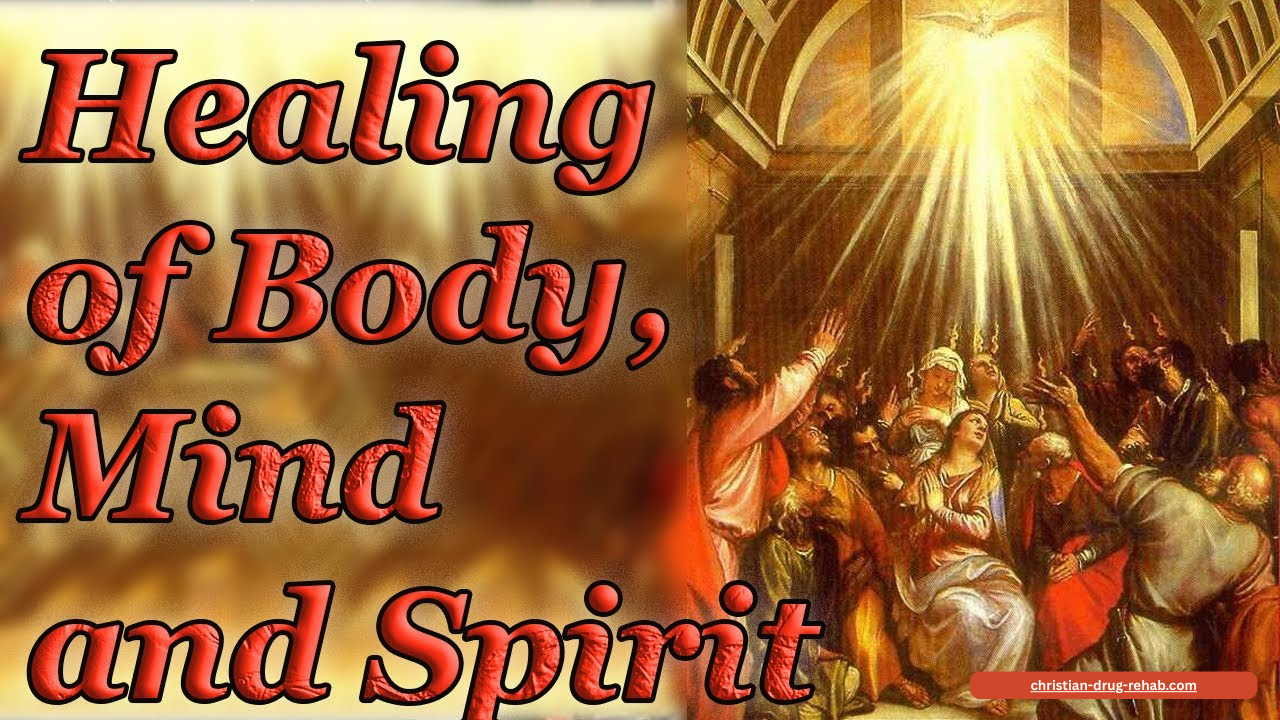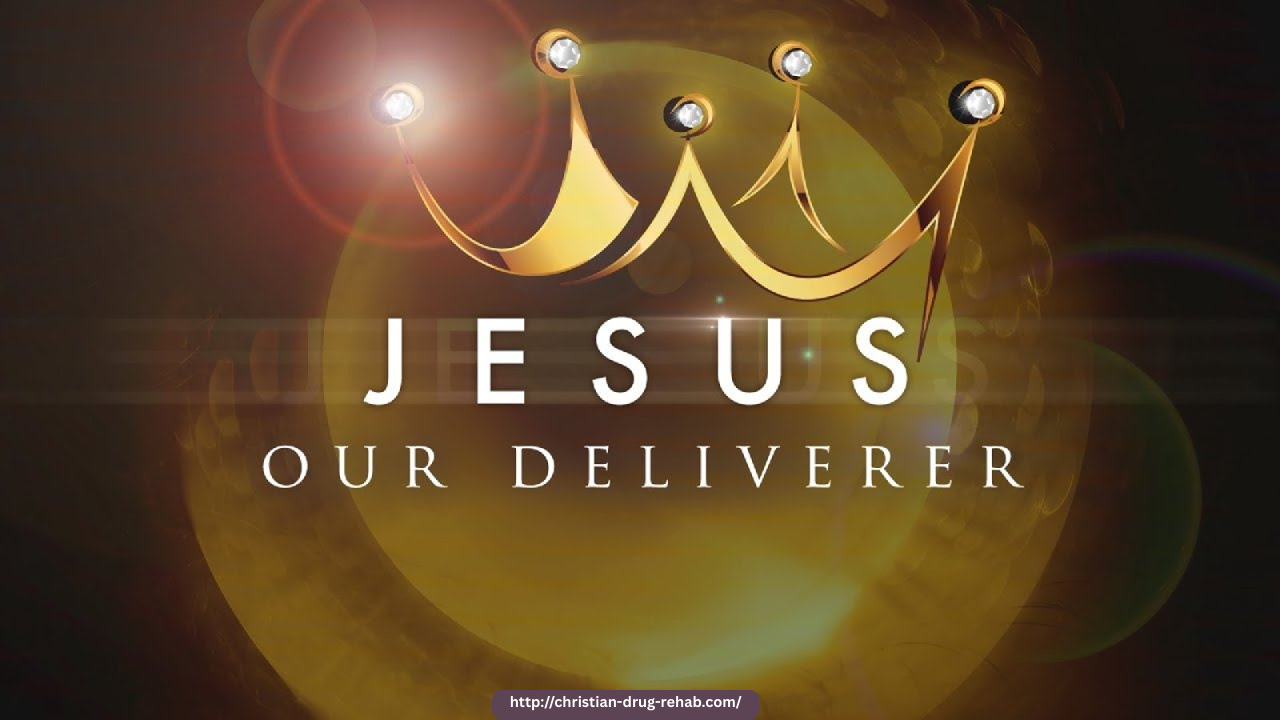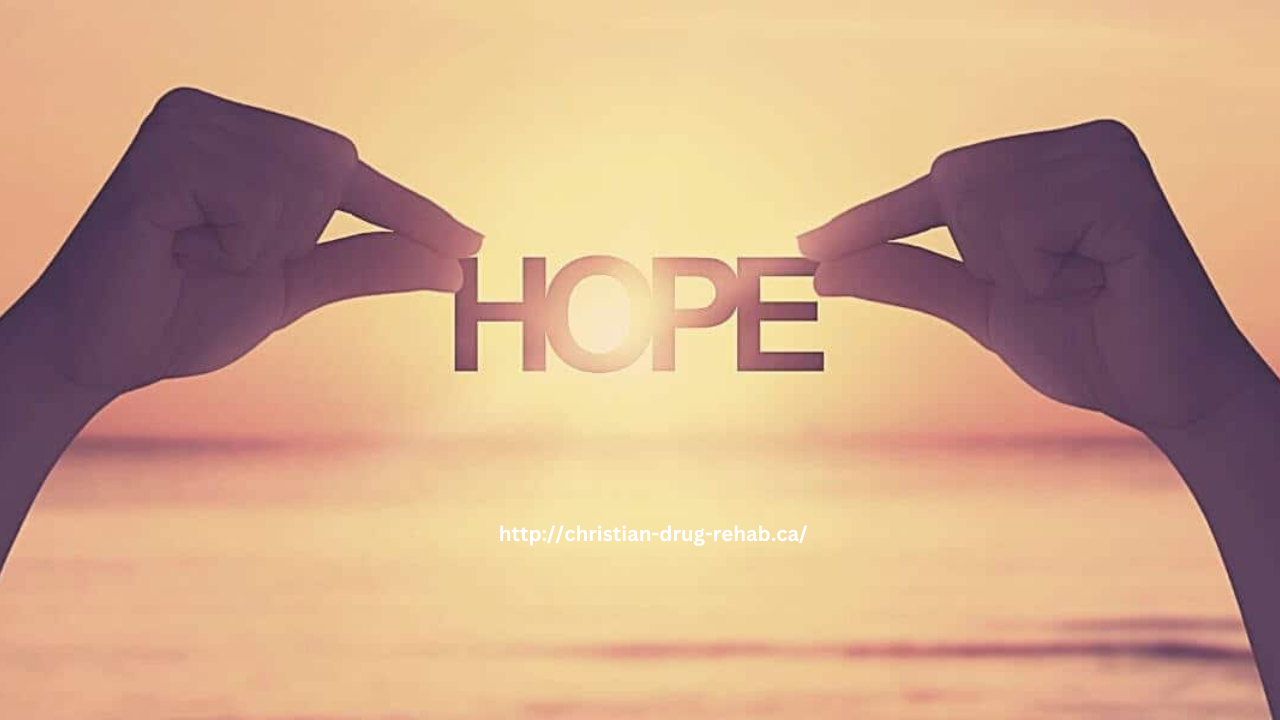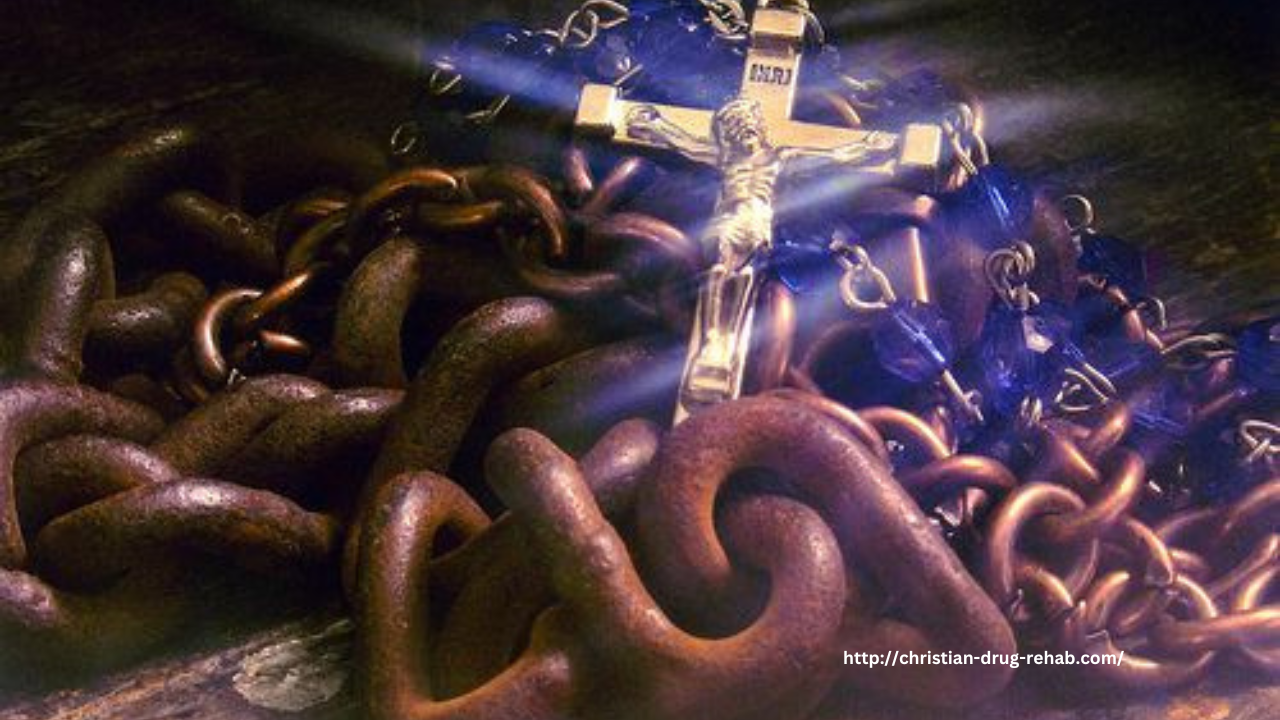May 15, 2025
Healing the Mind, Body, and Spirit: A Christian Perspective on Drug Recovery
Drug addiction doesn’t only affect one part of a person—it impacts the mind, body, and spirit. True recovery requires holistic healing, something the Christian faith uniquely offers through the redemptive power of Jesus Christ. A Christian approach to drug recovery focuses on restoring the whole person, acknowledging the depth of brokenness while offering the hope and healing found in God’s love.
Renewing the Mind
The battle against addiction begins in the mind. Negative thoughts, trauma, and destructive beliefs often fuel addictive behaviors. Romans 12:2 says, “Do not conform to the pattern of this world, but be transformed by the renewing of your mind.” Through Scripture, prayer, and Christian counseling, individuals can reprogram their thinking to align with God’s truth rather than the lies that feed addiction.
Studying God’s Word and meditating on His promises help counter the toxic thoughts that contribute to substance abuse. With time and consistent effort, the mind begins to heal, empowering individuals to make choices rooted in faith and truth.
Restoring the Body
Drug use takes a toll on the physical body. Restoration requires healthy habits, medical support, and the strength to resist relapse. 1 Corinthians 6:19-20 reminds believers, “Do you not know that your bodies are temples of the Holy Spirit…? Therefore honor God with your bodies.” Caring for the body is an act of worship and gratitude.
A Christian recovery program often includes physical care such as detoxification, nutrition, exercise, and rest. Inviting God into this aspect of healing encourages individuals to see their bodies as valuable and worthy of restoration.
Rebuilding the Spirit
Perhaps the most crucial aspect of recovery is spiritual renewal. Addiction creates a spiritual void—separating individuals from God’s presence and purpose. Psalm 51:10 pleads, “Create in me a pure heart, O God, and renew a steadfast spirit within me.” Only through a personal relationship with Jesus Christ can this renewal take place.
Spiritual healing involves confession, forgiveness, and a daily walk with God. Through repentance, individuals receive the grace that restores and strengthens the spirit. Prayer, worship, and fellowship with other believers help cultivate a vibrant spiritual life that reinforces sobriety.
The Power of Community
Christian recovery emphasizes the importance of community. Healing is not meant to happen in isolation. Hebrews 10:24-25 encourages believers to “consider how we may spur one another on toward love and good deeds… encouraging one another.” Support groups, church communities, and faith-based recovery programs provide accountability, encouragement, and a sense of belonging.
Being part of a community reminds individuals that they are not alone and that others are walking the same path. These relationships can be a powerful source of healing and hope.
Living in Wholeness
The goal of Christian drug recovery is not merely to stop using substances—it is to live a transformed life. John 10:10 reveals Christ’s mission: “I have come that they may have life, and have it to the full.” Healing the mind, body, and spirit restores individuals to the fullness of life God intended.
Through faith, grace, and the support of the Christian community, lasting recovery and wholeness are not only possible—they are promised.
May 1, 2025
Jesus, My Deliverer: Trusting God to Overcome Drug Dependency
Drug dependency is a powerful force that can enslave the mind, body, and spirit. For many, it leads to a life of isolation, pain, and hopelessness. But as Christians, we are not without hope. Jesus Christ is our Deliverer—the One who breaks every chain and sets the captives free. By trusting in Him, anyone struggling with drug dependency can find the strength, healing, and transformation they desperately need.
Recognizing the Need for a Savior
Before deliverance can happen, there must be a recognition of the need for help beyond ourselves. Many who struggle with addiction try to manage it alone, only to fall deeper into the cycle. Psalm 34:17-18 says, “The righteous cry out, and the Lord hears them; he delivers them from all their troubles. The Lord is close to the brokenhearted and saves those who are crushed in spirit.” God sees our pain, and He responds to the cries of those who seek Him.
Surrendering to Christ
The path to freedom begins with surrender. When we place our trust in Jesus, we acknowledge that we cannot overcome addiction on our own. Proverbs 3:5-6 reminds us, “Trust in the Lord with all your heart and lean not on your own understanding; in all your ways submit to him, and he will make your paths straight.” Surrendering to Christ allows His power to work in our lives, guiding us through each step of recovery.
Drawing Strength from God’s Word
God’s Word is a wellspring of truth, encouragement, and strength. When battling drug dependency, it’s essential to meditate on Scriptures that affirm God’s power and promises. Philippians 4:13 declares, “I can do all things through Christ who strengthens me.” This verse reminds us that we are not alone in our struggle. Jesus equips us with the strength we need to overcome.
Another powerful verse is John 8:36: “So if the Son sets you free, you will be free indeed.” This freedom is not just physical but spiritual. Jesus frees us from shame, guilt, and the lies of the enemy, giving us a new identity in Him.
Seeking Support Through the Body of Christ
God never intended for us to walk alone. The Church—the Body of Christ—is a vital source of support, accountability, and encouragement. Galatians 6:2 instructs, “Carry each other’s burdens, and in this way you will fulfill the law of Christ.” Support groups, Christian counselors, and faithful friends can help reinforce our trust in God and keep us focused on our recovery.
Living in Freedom and Purpose
As Jesus delivers us from drug dependency, He also calls us to a new life filled with purpose. 2 Corinthians 5:17 proclaims, “Therefore, if anyone is in Christ, the new creation has come: The old has gone, the new is here!” Recovery is not just about breaking free; it’s about becoming who God created us to be.
Through Jesus, our Deliverer, drug dependency loses its grip. With trust in God, continual prayer, and the support of His people, lasting freedom is not only possible—it is promised.
April 17, 2025
Biblical Strategies for Overcoming Drug Addiction and Restoring Your Life
Drug addiction is a serious and deeply rooted issue that can affect every aspect of a person’s life—physically, emotionally, and spiritually. While the road to recovery may seem daunting, the Bible offers powerful guidance and hope for those seeking to break free and find restoration. By applying biblical principles, individuals can experience healing, transformation, and the abundant life God desires for them.
1. Acknowledge the Need for God’s Help
The first step toward overcoming addiction is admitting that you cannot do it alone. Proverbs 3:5-6 teaches, “Trust in the Lord with all your heart and lean not on your own understanding; in all your ways submit to him, and he will make your paths straight.” Surrendering to God and recognizing your dependence on Him opens the door to His healing power and guidance.
2. Confession and Repentance
Addiction often brings with it a trail of brokenness, guilt, and shame. But God’s Word assures us that when we confess our sins, He is faithful to forgive. 1 John 1:9 promises, “If we confess our sins, he is faithful and just and will forgive us our sins and purify us from all unrighteousness.” Through confession and repentance, individuals can receive forgiveness and start fresh.
3. Renewing the Mind
The battle against addiction begins in the mind. Romans 12:2 encourages believers, “Do not conform to the pattern of this world, but be transformed by the renewing of your mind.” Filling your mind with God’s Word, meditating on His promises, and rejecting the lies of the enemy are key to breaking the cycle of addiction. Replace negative thoughts with biblical truths to reshape your mindset and identity.
4. Relying on Prayer and the Holy Spirit
Prayer is essential in staying connected to God and receiving His strength. Ephesians 6:18 says, “And pray in the Spirit on all occasions with all kinds of prayers and requests.” The Holy Spirit empowers believers to resist temptation and walk in righteousness. By daily seeking God in prayer and relying on the Spirit’s guidance, individuals can overcome the pull of addiction.
5. Building a Godly Support System
God did not create us to live in isolation. Ecclesiastes 4:9-10 states, “Two are better than one… If either of them falls down, one can help the other up.” Surrounding yourself with supportive, faith-filled people is vital for accountability and encouragement. Joining a church community, attending Bible studies, or participating in a Christ-centered recovery group like Celebrate Recovery can provide much-needed support.
6. Embracing Your New Identity in Christ
Addiction may have defined your past, but it does not have to determine your future. 2 Corinthians 5:17 proclaims, “Therefore, if anyone is in Christ, the new creation has come: The old has gone, the new is here!” In Christ, you are redeemed, restored, and given a new purpose. Embrace this identity and live each day knowing you are a child of God.
By applying these biblical strategies and leaning on God’s grace, you can overcome addiction and rebuild your life on a solid foundation of faith, hope, and love.
April 7, 2025
The Power of Prayer in Addiction Recovery: Strengthening Your Faith for Healing

Addiction is a powerful force that can isolate, destroy, and enslave. But for Christians, there is a deeper power available—one that brings hope, strength, and healing: the power of prayer. In the journey of addiction recovery, prayer is not just a religious practice; it is a lifeline that connects us to the source of true transformation—God Himself.
Prayer as a Path to God’s Presence
In the midst of addiction, it’s easy to feel far from God. Shame, guilt, and brokenness can create a sense of spiritual distance. But prayer bridges that gap. James 4:8 reminds us, “Draw near to God, and He will draw near to you.” Prayer opens the heart to God’s presence, inviting Him to work in areas we cannot fix on our own. It’s in these moments of honest surrender that healing begins.
Finding Strength Through Prayer
Recovery from addiction is not a one-time decision—it’s a daily battle. Some days feel overwhelming, and the temptation to relapse can be strong. That’s why prayer is essential. Philippians 4:6-7 encourages us: “Do not be anxious about anything, but in every situation, by prayer and petition, with thanksgiving, present your requests to God. And the peace of God… will guard your hearts and your minds in Christ Jesus.”
Through prayer, believers can exchange anxiety for peace, weakness for strength, and fear for faith. God listens, responds, and empowers His children to keep moving forward, even when the road is tough.
Confession and Cleansing
Addiction often brings with it deep regret and shame. Prayer offers a path to cleansing and renewal. 1 John 1:9 assures us, “If we confess our sins, He is faithful and just and will forgive us our sins and purify us from all unrighteousness.” Confession through prayer frees the soul from the weight of guilt and opens the door for grace and healing.
Honest conversations with God, where struggles and failures are laid bare, are met with compassion and mercy. This kind of prayer strengthens faith and builds trust in God’s unwavering love.
Praying with Others
There is great power in communal prayer. Matthew 18:20 says, “For where two or three gather in my name, there am I with them.” Joining with others in prayer—whether in a support group, church setting, or with trusted friends—creates a sense of unity and shared strength.
Community prayer encourages accountability, provides comfort, and invites the Holy Spirit to move in powerful ways. It also reminds those in recovery that they are not alone.
Continual Communication with God
Prayer doesn’t have to be long or formal. God welcomes every word, every cry for help, and every moment of gratitude. 1 Thessalonians 5:17 says simply, “Pray without ceasing.” Making prayer a constant habit—throughout the day and in every circumstance—keeps hearts aligned with God and focused on healing.
In addiction recovery, prayer is more than a ritual—it is a powerful weapon against darkness. By strengthening faith and inviting God’s presence into the process, prayer helps transform brokenness into wholeness. Through prayer, every person struggling with addiction can find renewed hope, peace, and the strength to walk in freedom.
March 17, 2025
From Darkness to Light: Finding Hope in Christ During Addiction Recovery
Addiction is a painful and overwhelming struggle that can leave individuals feeling lost and hopeless. It often leads to darkness—separation from loved ones, self-destruction, and spiritual emptiness. However, no matter how deep the struggle, there is always hope in Christ. Through faith, surrender, and the power of God’s grace, anyone battling addiction can move from darkness into the light of a restored life.
Acknowledging the Darkness
The first step in any recovery journey is acknowledging the reality of addiction and its consequences. Many who struggle with substance abuse experience feelings of guilt, shame, and despair. The Bible speaks to these struggles, reminding us in Romans 3:23 that “all have sinned and fall short of the glory of God.” No one is beyond redemption, and acknowledging personal struggles is the first step toward healing.
Turning to Christ for Strength
Addiction is not just a physical or emotional battle; it is also a spiritual one. True healing comes when we turn to Christ and surrender our burdens to Him. In Matthew 11:28, Jesus invites us, “Come to me, all who are weary and burdened, and I will give you rest.” By leaning on Him, individuals in recovery can find the strength they need to resist temptation and embrace a new life of purpose.
Experiencing the Power of Forgiveness
One of the greatest struggles for those recovering from addiction is the weight of past mistakes. Feelings of regret can make it difficult to move forward. However, through Christ, we are offered complete forgiveness. 1 John 1:9 assures us, “If we confess our sins, he is faithful and just and will forgive us our sins and purify us from all unrighteousness.” Embracing God’s grace allows individuals to release guilt and walk forward in freedom.
Relying on Community and Support
Recovery is not a journey meant to be taken alone. The Bible encourages believers to support and uplift one another. Galatians 6:2 teaches, “Carry each other’s burdens, and in this way you will fulfill the law of Christ.” Faith-based recovery groups, church communities, and Christian counseling can provide essential encouragement, accountability, and guidance for those overcoming addiction.
Renewing the Mind Through Scripture and Prayer
A critical aspect of lasting recovery is the renewal of the mind. Romans 12:2 instructs, “Do not conform to the pattern of this world, but be transformed by the renewing of your mind.” Daily prayer and Scripture study help replace negative thought patterns with God’s truth, equipping individuals to resist temptation and build a strong foundation for their new life.
Living in the Light of Christ
Stepping out of addiction and into a life filled with faith and purpose is a journey of transformation. 2 Corinthians 5:17 proclaims, “Therefore, if anyone is in Christ, the new creation has come: The old has gone, the new is here!” By trusting in God’s plan, staying connected to a faith community, and embracing the light of Christ, those recovering from addiction can experience true healing and restoration.
No matter how dark the past may have been, God’s light is always ready to shine through. In Him, there is hope, freedom, and a new beginning for all who seek His grace.
February 28, 2025
Breaking Chains: A Christian Approach to Overcoming Drug Addiction
Drug addiction is a powerful and destructive force that can entangle individuals in a cycle of despair and hopelessness. However, as Christians, we believe in the power of God to break every chain of bondage, including addiction. Through faith, prayer, and the support of a Christ-centered community, individuals struggling with substance abuse can find true healing and restoration.
Recognizing the Battle
Addiction is not just a physical struggle; it is also a spiritual battle. The enemy seeks to enslave people through destructive habits and keep them from the abundant life God intends for them. John 10:10 reminds us, “The thief comes only to steal and kill and destroy; I have come that they may have life, and have it to the full.” Recognizing addiction as a battle for the soul is the first step toward seeking divine intervention and healing.
Turning to God for Strength
Self-reliance alone is not enough to break the chains of addiction. True strength comes from the Lord. Philippians 4:13 declares, “I can do all things through Christ who strengthens me.” By surrendering to God, individuals can draw upon His power to overcome their struggles. Daily prayer, reading Scripture, and seeking His presence are essential steps in the journey to freedom.
The Role of Repentance and Forgiveness
One of the greatest obstacles to recovery is the burden of guilt and shame. However, God’s grace is sufficient to cleanse every sin. 1 John 1:9 assures us, “If we confess our sins, He is faithful and just and will forgive us our sins and purify us from all unrighteousness.” Repentance allows individuals to turn away from their old ways and embrace a new life in Christ. Understanding that they are forgiven can empower them to move forward without the weight of past mistakes.
Seeking Support from the Christian Community
No one should fight addiction alone. God designed the Church to be a source of encouragement and strength. Galatians 6:2 instructs believers to “Carry each other’s burdens, and in this way, you will fulfill the law of Christ.” Christian support groups, pastoral counseling, and recovery ministries provide a network of encouragement, accountability, and prayer. Programs like Celebrate Recovery offer Christ-centered guidance for those battling addiction.
Replacing Addiction with Purpose
Breaking free from addiction is not just about letting go of harmful habits; it is about embracing a new identity in Christ. Ephesians 2:10 states, “For we are God’s handiwork, created in Christ Jesus to do good works, which God prepared in advance for us to do.” By discovering and pursuing God’s purpose for their lives, individuals can fill the void left by addiction with meaningful service, relationships, and spiritual growth.
Walking in Victory
Recovery is a journey, and setbacks may happen. However, those who trust in the Lord will find renewed strength daily. Isaiah 40:31 encourages us: “But those who hope in the Lord will renew their strength. They will soar on wings like eagles; they will run and not grow weary, they will walk and not be faint.” With faith, perseverance, and the grace of God, victory over addiction is possible.
Through Christ, every chain can be broken. By trusting in His power, seeking support, and embracing a new life in Him, individuals struggling with addiction can find the freedom and abundant life that God has promised.
February 15, 2025
Faith in Recovery: How Christians Can Overcome Drug Addiction Through God’s Grace
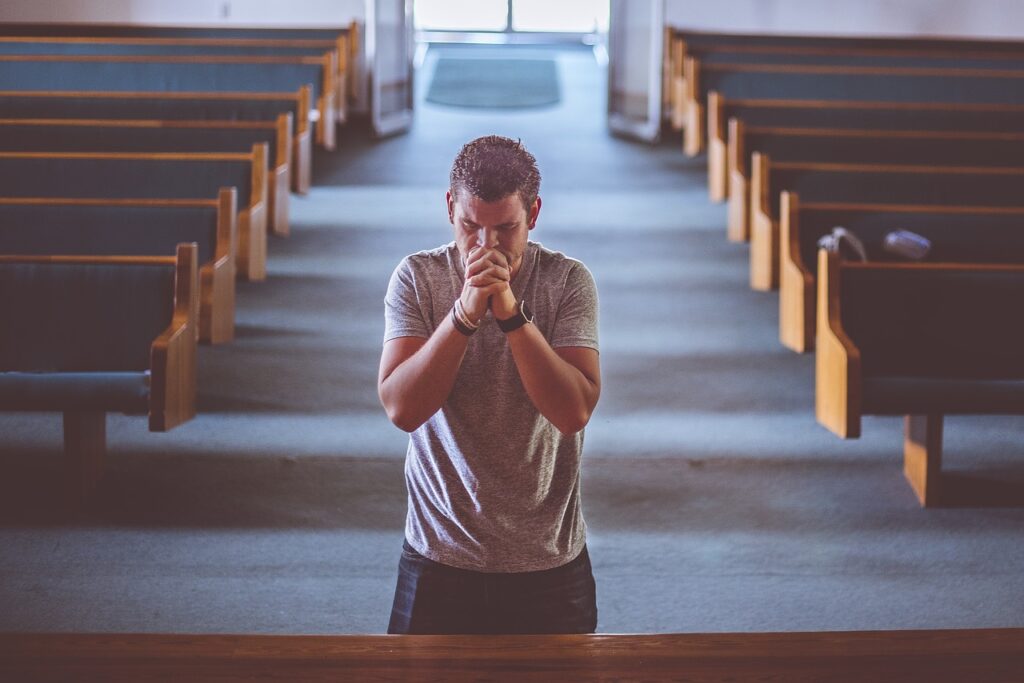
Drug addiction is a battle that affects millions of people, including devoted Christians. For believers struggling with addiction, recovery is not just about breaking a physical dependence; it is also a spiritual journey toward restoration and healing. The good news is that through faith in Jesus Christ, individuals can find the strength, hope, and grace needed to overcome addiction and reclaim their lives.
Recognizing the Problem and Seeking Help
The first step toward recovery is acknowledging the problem. Many Christians struggling with addiction may feel shame or guilt, believing they have failed God. However, the Bible reminds us that all have sinned and fallen short of God’s glory (Romans 3:23). Addiction is not a sign of weakness but rather a condition that requires healing—physically, mentally, and spiritually. Seeking help from a pastor, Christian counselor, or faith-based recovery program is an essential step in the journey.
Relying on God’s Strength
Overcoming addiction requires more than willpower—it demands reliance on God’s strength. Philippians 4:13 states, “I can do all things through Christ who strengthens me.” This promise reassures believers that they are not alone in their struggle. Through prayer, fasting, and meditating on God’s Word, Christians can develop a deeper dependence on Him, allowing His grace to provide the strength necessary for recovery.
The Power of Prayer and Scripture
Prayer is a powerful tool in the recovery process. Regular communication with God provides peace, guidance, and encouragement. Scripture also plays a vital role in renewing the mind and spirit. Verses such as 2 Corinthians 12:9—”My grace is sufficient for you, for my power is made perfect in weakness”—remind believers that God’s grace is always available, even in the darkest moments.
Meditating on verses about God’s love, forgiveness, and restoration can help replace negative thoughts and reinforce the truth that He is always ready to lift His children up. Psalm 34:18 says, “The Lord is close to the brokenhearted and saves those who are crushed in spirit.” This verse serves as a reminder that God’s presence is near, offering healing and comfort.
The Role of the Church and Christian Community
Healing from addiction should not be a journey taken alone. The church and Christian community play a crucial role in supporting those in recovery. Through accountability partners, small group Bible studies, and Christ-centered recovery programs like Celebrate Recovery, believers can find encouragement, wisdom, and companionship on their path to healing.
Galatians 6:2 teaches, “Carry each other’s burdens, and in this way, you will fulfill the law of Christ.” Having a strong support system allows Christians to stay accountable, share their struggles, and celebrate victories together.
Walking in Freedom and Purpose
God’s grace not only forgives but also restores and empowers. Once free from addiction, believers can embrace their God-given purpose and use their testimony to inspire and help others. 2 Corinthians 5:17 declares, “Therefore, if anyone is in Christ, the new creation has come: The old has gone, the new is here!”
Through faith, prayer, and the unwavering grace of God, Christians can overcome addiction and walk in the freedom and victory that Christ has provided. Recovery is possible, and with God’s help, a transformed life awaits.
January 25, 2025
Finding Redemption: Stories of Christians Who Beat Drug Addiction
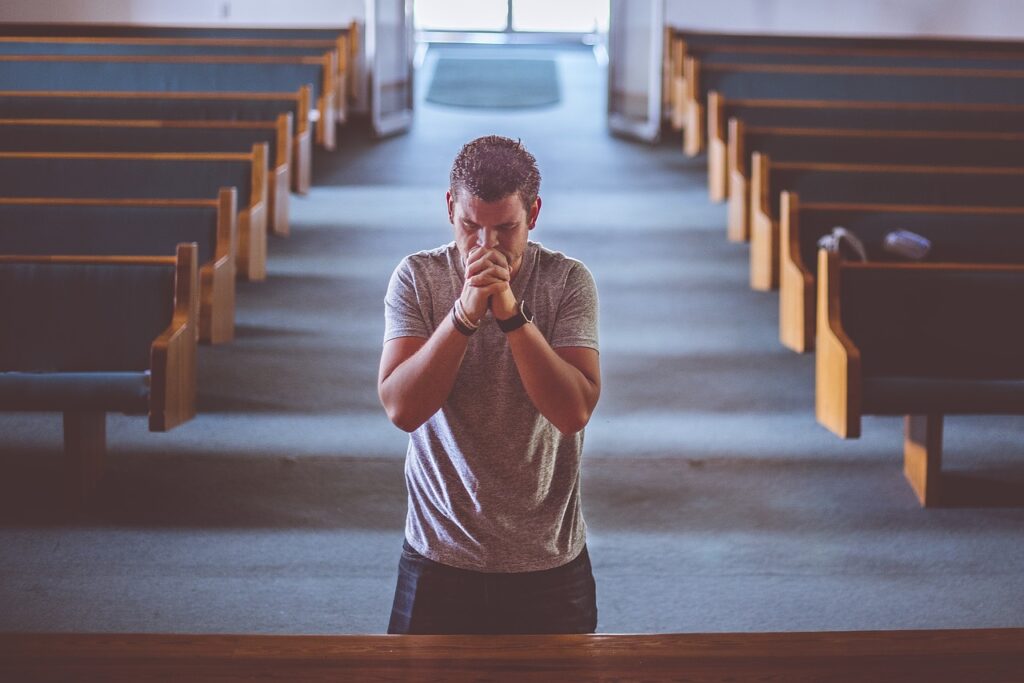
Drug addiction is a powerful and often overwhelming battle, but for many Christians, it has also become the backdrop for stories of redemption, hope, and transformation. Through faith, determination, and support from their communities, countless individuals have overcome the grip of addiction and discovered a renewed sense of purpose. Their testimonies serve as a source of inspiration, demonstrating the life-changing power of God’s grace and love.
A Journey from Darkness to Light
For many Christians, addiction feels like a descent into darkness. It can rob individuals of their sense of self-worth, alienate them from their loved ones, and challenge their faith. However, these struggles often become the starting point for remarkable stories of redemption.
Take, for example, Sarah, who battled a decade-long addiction to opioids after a car accident left her dependent on prescription painkillers. At her lowest point, Sarah found herself homeless and estranged from her family. One night, sitting outside a shelter, she prayed for the first time in years, asking God for help. That prayer marked the beginning of her journey to recovery.
Through the support of a local church and a Christian recovery program, Sarah not only overcame her addiction but also rediscovered her faith. Today, she works as a counselor, helping others find the same hope and healing she experienced. “God didn’t just save me from my addiction,” Sarah shares. “He gave me a new purpose and a new life.”
The Role of Faith in Recovery
Faith plays a central role in the recovery journeys of many Christians. It provides a source of hope, strength, and direction in moments of doubt or struggle. For some, encountering God’s love and forgiveness is the turning point that inspires them to seek help and begin the recovery process.
John’s story is a testament to this transformative power. After years of battling alcoholism, he reached a breaking point when his wife left him and he lost his job. He attended a church service at the invitation of a friend, where he heard a sermon about God’s unconditional love. “For the first time, I felt like I wasn’t beyond saving,” John recalls.
Encouraged by his newfound faith, John joined a Celebrate Recovery group, where he found a supportive community and practical tools for overcoming addiction. With God’s help, he rebuilt his life and now serves as a mentor to others in recovery.
Community and Accountability
The church community often plays a crucial role in the redemption stories of Christians recovering from addiction. Support groups, pastoral counseling, and accountability partners provide encouragement and practical assistance during the recovery process.
Martha, who struggled with methamphetamine addiction, credits her church community with helping her stay on the path to sobriety. “I couldn’t have done it alone,” she says. “The people in my church prayed for me, encouraged me, and held me accountable when I felt like giving up.”
The Message of Redemption
The stories of Christians who have overcome addiction highlight a common theme: redemption is always possible. No matter how far someone has fallen, God’s grace is sufficient to lift them out of their struggles and guide them to a new life.
These testimonies remind us that recovery is not just about breaking free from addiction but about embracing a life of purpose, faith, and joy. They stand as living proof that with God’s help, anyone can find redemption and experience a life transformed by His love.
October 13, 2024
How the Church Can Support Members Battling Substance Abuse

Substance abuse is a growing concern that affects individuals from all walks of life, including members of Christian communities. The church has a vital role to play in supporting individuals who are struggling with addiction, offering not only spiritual guidance but also practical support and a sense of community. By fostering an environment of compassion, understanding, and grace, the church can become a place of healing and recovery for those facing this difficult battle.
Creating a Judgment-Free Environment
One of the most important ways the church can support individuals battling substance abuse is by creating a judgment-free environment. Addiction often carries a heavy stigma, and many people fear being judged or shamed for their struggles. This can prevent them from seeking help or being open about their challenges. The church, however, is called to embody Christ’s love and compassion. By promoting understanding rather than judgment, church leaders and members can create a safe space where individuals feel comfortable seeking support without fear of condemnation.
Providing Spiritual Support
For Christians facing substance abuse, spiritual support is often a crucial part of their recovery journey. The church can play a central role in this by offering prayer, pastoral counseling, and spiritual mentorship. Through these avenues, individuals can find hope, comfort, and encouragement, drawing on their faith to overcome addiction. Bible studies and sermons that emphasize themes of redemption, healing, and God’s unconditional love can also inspire individuals to believe in their ability to recover and experience transformation through Christ.
Moreover, integrating scripture that emphasizes healing and God’s strength can be highly encouraging. Verses such as 1 Peter 5:7, “Cast all your anxiety on Him because He cares for you,” remind those struggling that they are not alone in their battles. These reminders can offer strength and perseverance during the recovery process.
Fostering Community and Accountability
Community and accountability are key components in addiction recovery, and the church is uniquely positioned to provide both. Small groups, recovery ministries, and fellowship opportunities create a sense of belonging that is essential for healing. Isolation often fuels addiction, but through genuine relationships within the church, individuals can experience connection and support. Recovery-focused ministries like Celebrate Recovery provide a safe space for people to share their stories, receive encouragement, and hold one another accountable.
Accountability is also critical in recovery. Trusted church members can serve as accountability partners, helping individuals stay committed to their sobriety goals and providing encouragement during difficult times. Having a community of believers who understand and care deeply about their journey can make a significant difference in long-term recovery.
Offering Practical Resources
In addition to spiritual and emotional support, churches can provide practical resources to help individuals in their recovery process. This can include offering referrals to professional counselors, addiction treatment programs, and healthcare providers who specialize in addiction recovery. Churches can also host workshops and seminars on addiction awareness, mental health, and coping strategies, helping individuals and their families better understand the complexities of addiction.
Additionally, churches can partner with local organizations to provide resources such as housing assistance, food, and employment opportunities for those in recovery. By addressing the practical needs of those battling addiction, the church can help remove barriers that may hinder the recovery process.
Promoting Forgiveness and Grace
One of the most powerful messages the church can offer to those struggling with addiction is the message of forgiveness and grace. Addiction often comes with feelings of guilt, shame, and self-condemnation. The church can provide a place where individuals learn to embrace God’s forgiveness and extend grace to themselves. By emphasizing that recovery is a journey, and setbacks do not define their worth in God’s eyes, the church can help individuals move forward with hope and determination.
Conclusion
The church has a significant role in supporting individuals battling substance abuse. By fostering a compassionate, judgment-free environment, providing spiritual and practical support, and promoting accountability and community, churches can become havens of healing and transformation for those facing addiction. As the body of Christ, the church is uniquely equipped to walk alongside individuals on their recovery journey, offering hope, grace, and the power of God’s love.
September 5, 2024
Faith-Based Approaches to Overcoming Drug Addiction

Drug addiction is a profound challenge that affects countless individuals and their families. For Christians facing this struggle, faith-based approaches can offer a powerful path to recovery, intertwining spiritual beliefs with practical strategies to overcome addiction. These approaches leverage the strength of faith, community, and the teachings of Christianity to support healing and transformation.
The Role of Faith in Recovery
Faith plays a pivotal role in the recovery process. For many Christians, belief in God’s power and grace provides a foundation of hope and resilience. The Bible offers numerous passages that encourage strength and perseverance. Scriptures such as Philippians 4:13, “I can do all things through Christ who strengthens me,” inspire individuals to believe in their capacity to overcome challenges. This spiritual belief system can help individuals find purpose and motivation in their journey to sobriety.
The Importance of Prayer and Scripture
Prayer and scripture are integral to faith-based recovery programs. Regular prayer can help individuals seek divine guidance, strength, and comfort. Many Christians find that engaging in daily prayer helps them stay focused on their goals and manage cravings. Furthermore, meditating on Bible verses that emphasize healing, redemption, and renewal can provide encouragement and reassurance. Psalms 34:17-18, which speaks of God being close to the brokenhearted, can be particularly comforting for those in recovery.
Community Support: The Power of Fellowship
The Christian community plays a crucial role in addiction recovery. Church groups, support groups, and faith-based counseling services offer a network of support and accountability. Engaging with a church community provides a sense of belonging and reduces feelings of isolation, which are common among those struggling with addiction. Fellowship groups, such as Celebrate Recovery, combine Christian principles with a 12-step program, creating a supportive environment where individuals can share their struggles and triumphs.
Integrating Spiritual and Practical Strategies
A faith-based approach to recovery integrates both spiritual and practical strategies. While spiritual practices provide emotional and psychological support, practical steps are also essential. These may include seeking professional counseling, attending addiction recovery meetings, and developing a healthy lifestyle. Many faith-based recovery programs emphasize the importance of addressing the root causes of addiction, such as unresolved trauma or mental health issues, alongside spiritual healing.
The Role of Forgiveness and Redemption
Forgiveness and redemption are central themes in Christianity that offer hope for those struggling with addiction. Many individuals find that understanding God’s forgiveness allows them to forgive themselves and move forward from past mistakes. The concept of redemption, the idea that one can be restored and transformed, is particularly powerful. It reinforces the belief that recovery is not only possible but that individuals can emerge from their struggles renewed and stronger.
Challenges and Considerations
While faith-based approaches can be highly effective, they are not without challenges. It is essential for those in recovery to seek a balanced approach that includes professional medical and psychological support alongside spiritual guidance. Integrating faith with evidence-based practices ensures a comprehensive treatment plan that addresses all aspects of addiction.
Conclusion
Faith-based approaches to overcoming drug addiction offer a holistic path to recovery for many Christians. By combining spiritual practices, community support, and practical strategies, individuals can find strength and resilience in their journey towards sobriety. Embracing faith as a central component of recovery not only fosters hope and motivation but also provides a framework for long-term healing and personal growth.
